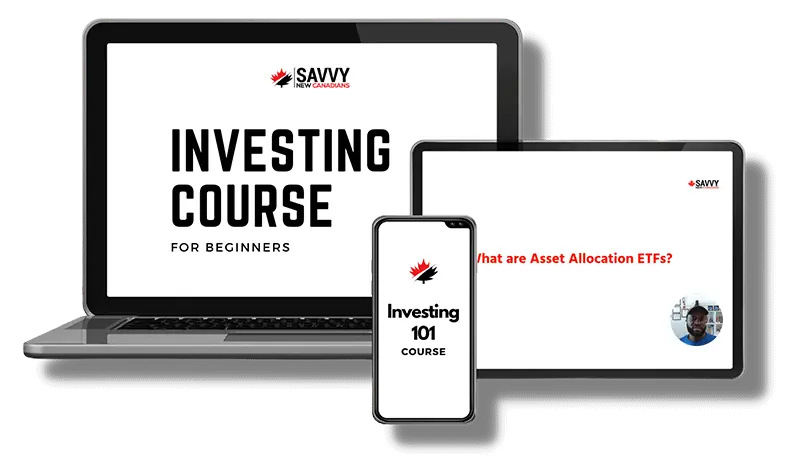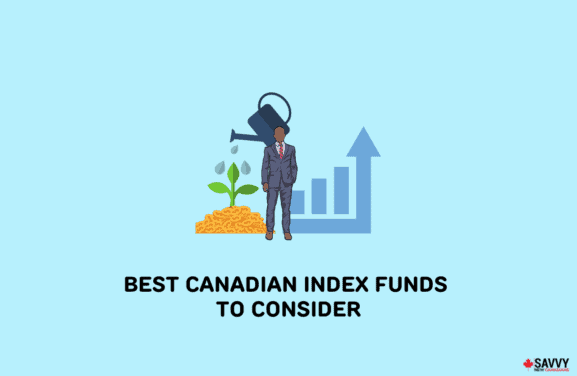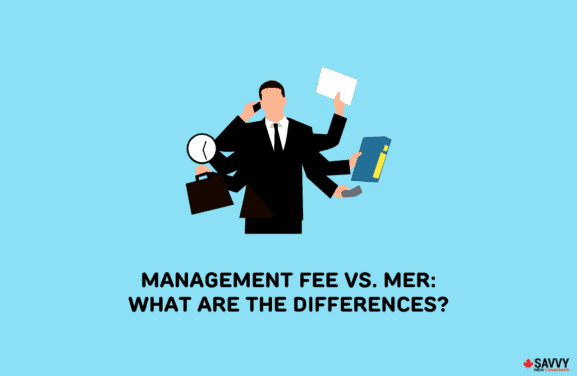For beginner investors in Canada, one of the most important lessons will be understanding two common investment assets: stocks and bonds.
Both stocks and bonds are important pieces in a well-balanced investment portfolio. While they are often discussed together, stocks and bonds are very different assets.
How exactly are they different? This article will explain everything you need to know about stocks and bonds as a new investor in Canada.
Stocks vs Bonds: Differences
Asset Type
The largest difference between stocks and bonds is that a stock is an equity while a bond is a debt. While you can own both assets in your portfolio, the purposes they serve are vastly different.
Shares of a stock can rise in value as the company grows and performs well. Bonds will not appreciate in value but will provide a consistent stream of income via coupon payments.
Risk Level
Stocks are generally more volatile than bonds because the price relies on the performance of the company. The price can also be impacted by external forces like the strength of the economy, interest rates, and sector news.
Bonds are low-risk and are seen as safe investments compared to stocks. Many investors hold bonds in their portfolios as a hedge against stock volatility.
Stocks and bonds tend to move inversely to each other, so if the equity markets fall, then the bond markets are usually on the rise.
Capital Gains vs. Interest Payments
The profit made from stocks is called capital gains. These gains are only made and realized after the stock has been sold at a higher price than it was bought for. Stock prices rise when the company’s performance improves over time.
Bonds do not provide much capital appreciation as their value does not rely on the performance of the business. Instead, bonds provide regular interest payments as well as returning the initial investment at the maturity date.
Related: How to avoid capital gains tax on property tax.
Stocks vs Bonds: Similarities
Both Can Exist in Your Investment Portfolio
Obviously, both stocks and bonds are financial assets. They can co-exist in your investment portfolio despite the major differences in their characteristics. Their inverse relationship creates a balanced portfolio that can be beneficial during volatile times.
Both are Impacted by Interest Rates
The one thing that can negatively impact both stocks and bonds is rising interest rates. Most stocks, especially growth stocks, struggle in a rising interest rate environment, while the interest rate yield from bonds is less attractive.
Stocks Explained
For most investors, stocks are what we immediately think of when we hear the term investing. To put it simply, stocks represent a fractional ownership of a publicly traded company.
When you buy stocks on the stock market, you are buying shares of a company. The more shares you own, the more of the company you own. A stock’s price is how much one share of that stock costs.
There are a few different types of stocks that you can buy, but the main two are common and preferred shares. They each have their own purpose, but they all represent partial ownership of the underlying company.
Common Stock
Common stock is typically the shares that are owned by individual retail investors. When you own common shares of a company, you get to take part in things like voting for the Board of Directors and other corporate events like stock splits.
If the company ever liquidates, common shareholders have rights to the assets of the company.
Preferred Stock
Preferred stock also represents partial ownership of the company, but these shares come with different rights. Specifically, preferred shares usually pay out a higher dividend yield, and shareholders are also entitled to a larger portion of the company’s assets in the case of liquidation.
Preferred shares are typically owned by ownership, executives, or institutional investors and have precedence over common shareholders for company assets.
Bonds Explained
Bonds are a form of debt that represents a loan between the investor and the borrowing entity. These instruments are used to raise capital for businesses or governments. Bonds pay out a fixed interest rate or coupon to debtholders as a payment for the loan.
Finally, bonds also come with a maturity date, at which point the principal is paid back to the loaner.
Bonds have an inverse relationship with stocks and interest rates. Generally speaking, as stocks rise, bonds will fall in value. When interest rates rise, bond prices also fall.
Bonds are seen as a safe haven for investors to avoid market or economic volatility that has an impact on stock prices.
Finally, bonds also have a credit rating, which measures the creditworthiness of the bond. This is a measure of the bond issuer’s financial standing and ability to pay back the principal and interest payments.
Corporate Bonds
Corporate bonds are money loaned by the bond purchasers to the company that issued them. Companies can use this capital to spend on growing their business and operations.
There are a few different types of corporate bonds, including fixed-rate bonds, which have a fixed coupon yield; floating-rate bonds, which have a variable yield; and zero-coupon bonds, where you pay less upfront and receive the full value at maturity.
Treasury Bonds
These bonds are issued by the federal government and are usually seen as the safest bonds because they are backed by the Government of Canada.
Treasury bonds are tied to the Bank of Canada’s treasury yield and come with terms of anywhere from 1 to 30 years.
Municipal Bonds
As their name suggests, municipal bonds are issued by municipalities or provinces. Most municipalities pay out interest on their issued bonds from city and provincial taxes.
While not as safe of an investment as Treasury Bonds, Municipal Bonds are still considered relatively stable investments and can be purchased in terms of a few months to 30 years.
Pros and Cons of Stocks
The stock market is often referred to as the greatest builder of long-term wealth there is. Investing in the right companies over time can reward you with outsized capital gains.
Buying stocks means you own a tiny part of that company. This is a great way to stay interested in your investments, as you can track the performance of the company in real time.
On the other hand, stocks are also much more volatile. It is difficult to predict when a company will have a disappointing quarter or when the stock market will crash.
Pros and Cons of Bonds
Bonds provide instant stability to your portfolio and a steady cash flow through interest payments. These fixed-income assets are a great way to protect your cash during times of market volatility.
Regular interest payments can help inject much-needed cash into your account. There is also a near-zero percent chance of permanent losses like with stocks.
Unfortunately, bonds do tend to underperform stocks in the long run and do not provide much in the way of capital appreciation.
Stocks vs Bonds: How To Choose
The true answer to this question will depend on several factors. To compare stocks and bonds is like comparing apples and oranges. Each asset serves a purpose in your portfolio.
For younger investors, it likely makes more sense to invest in stocks. For those investors who are nearing retirement and are seeking stability and cash flow, then investing in bonds makes more sense.
Remember that you can own both stocks and bonds in a balanced portfolio!
How To Invest in Stocks and Bonds
Stocks can be purchased at any Canadian brokerage with relative ease. Using a discount brokerage like Wealthsimple or Questrade can help save on commission fees over the long run.
Bonds can be purchased at most Canadian brokerages, although some will only offer Bond ETFs. You can also buy bonds directly from the issuer, whether it is a corporation or a government body.
Stocks vs Bonds vs Mutual Funds
Mutual funds are another popular investment asset for Canadians. How does it differ from stocks and bonds?
Mutual funds hold several assets that can be stocks, bonds, or both. This basket approach to investing limits downside risk and is less volatile than investing in individual stocks.
They also have fees called a Management Expense Ratio or MER. The mutual fund provider charges these fees to each investor. Generally speaking, the more the fund is managed, the higher the MER.
Mutual funds do not trade on exchanges but are large pools of investor money used to buy the underlying assets. They are typically offered by banks or other financial management companies.
FAQs
Bonds are perfect for those investors who are seeking income flow and low volatility. If you are expecting some market volatility, then bonds could be a good hedge until things calm down.
Bonds are much safer than stocks but do not provide anywhere near as much potential upside for capital appreciation.
Over short periods of volatility, bonds can outperform stocks, especially if there is a stock market correction or crash. Over a longer period of time, stocks tend to handily outperform bonds.
Aside from holding your money in a high-interest savings account, the safest investment is likely a Treasury Bond from the Canadian government.
For the most part, bonds can be safe when the stock market crashes and can even rise in value, given their inverse relationship. A market crash is a sign of an unhealthy economy, and other things can impact bonds, like rising interest rates.






